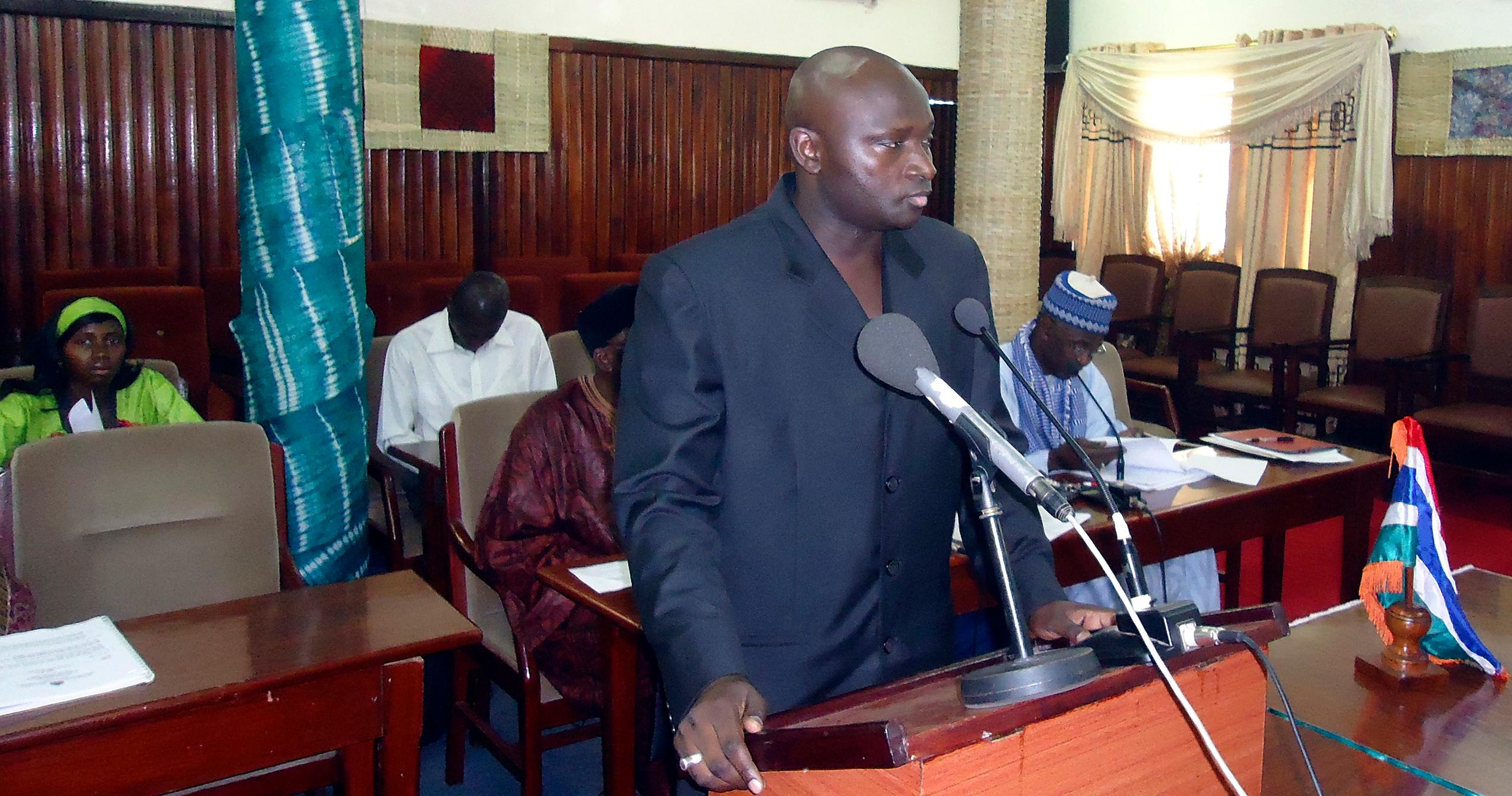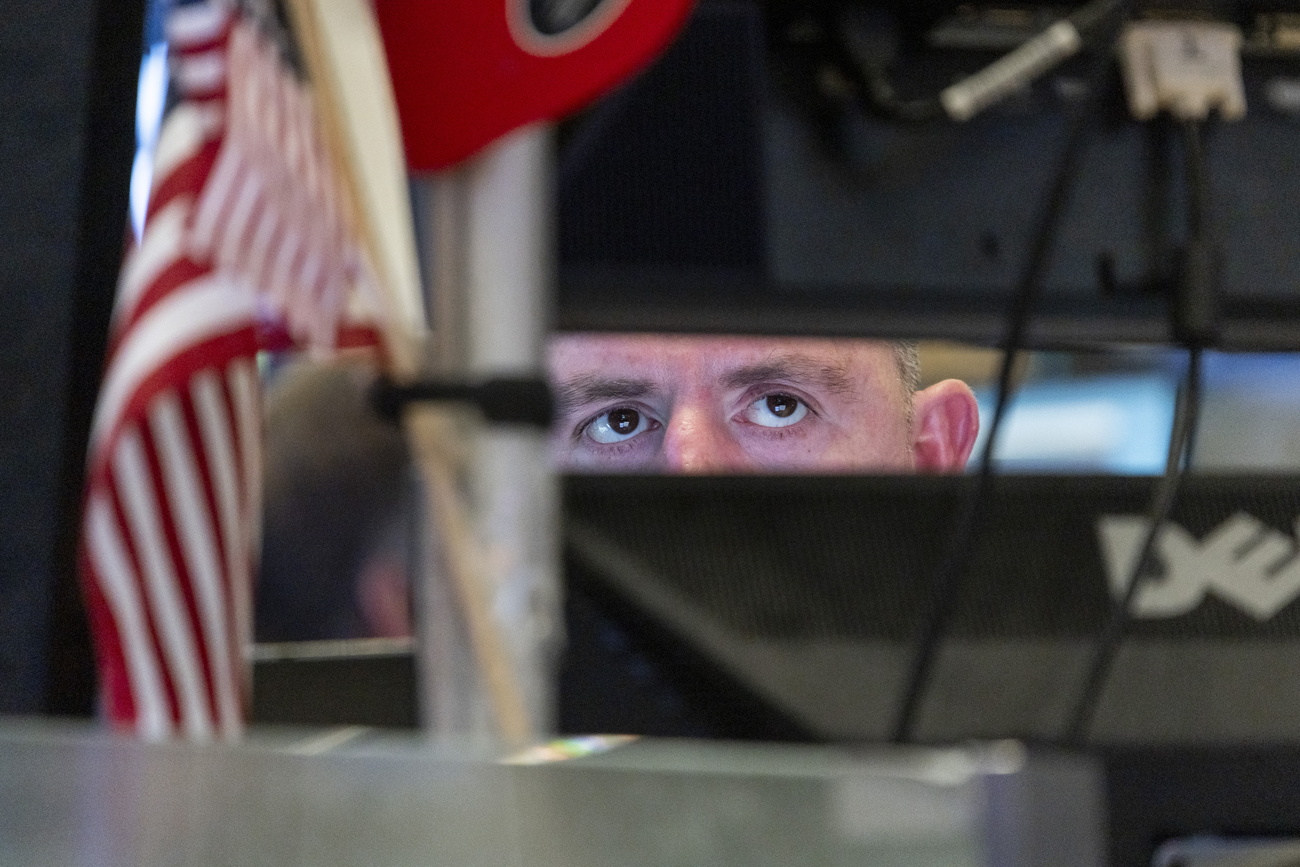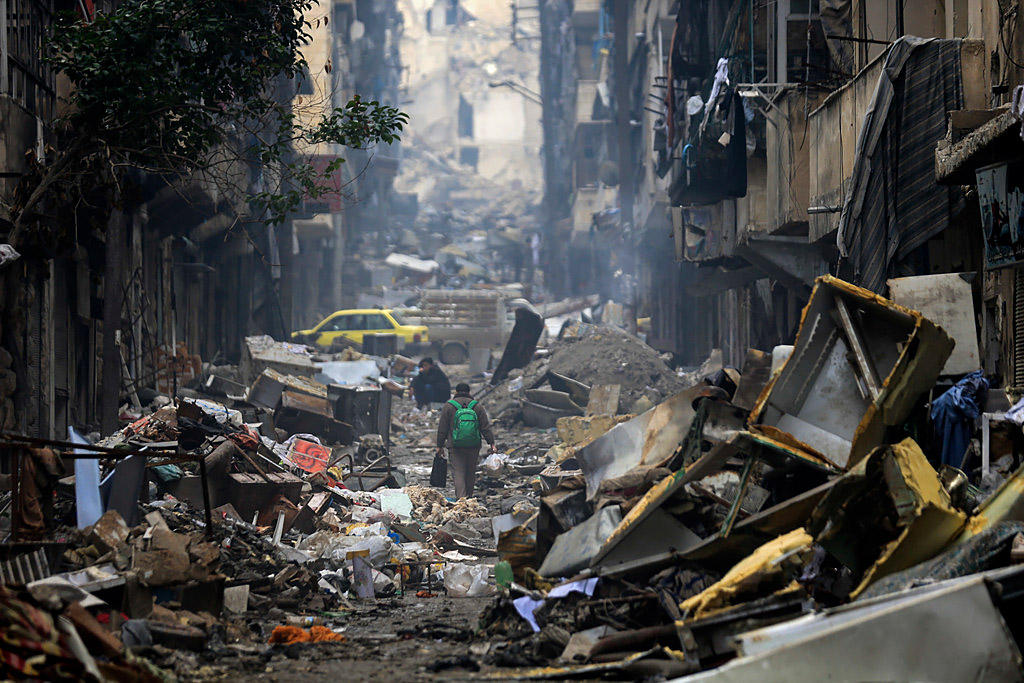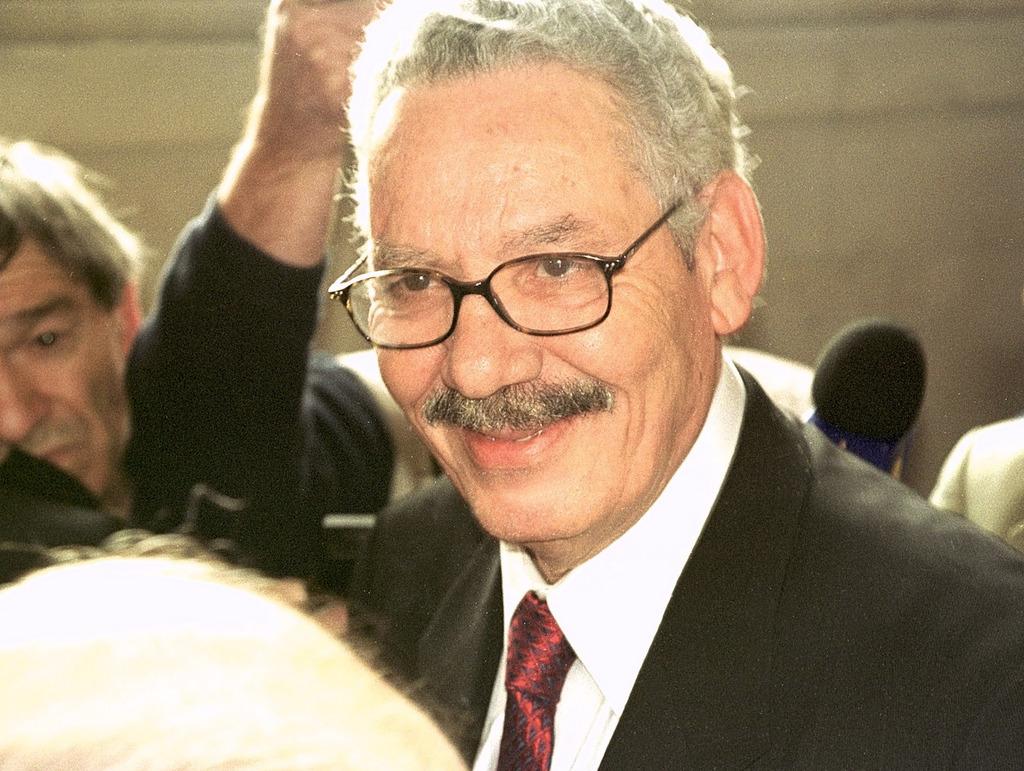Will Switzerland seize opportunity in Sonko and Kosiah cases?

Human rights NGOs hope Switzerland has the political will to prosecute former Gambian minister Ousman Sonko and former Liberian rebel leader Alieu Kosiah. Sonko is suspected of crimes against humanity while Kosiah is charged with committing war crimes.
The NGOs TRIALExternal link and Civitas MaximaExternal link see both cases as important tests for Switzerland’s use of an international legal tool known as “universal jurisdiction”.
Ousman Sonko, a former long-time interior minister of Gambia, was arrested in Bern in January this year, on allegations of torture filed by the Swiss branch of TRIAL International. The allegations against Sonko now include crimes against humanity, and his case has been referred to the federal authorities.
But the first case that could come to trial is Alieu Kosiah, a former rebel leader in Liberia, who has been in custody in Switzerland since November 2014, on accusations of war crimes filed on behalf of Liberian victims by several lawyers, including the Director of Civitas Maxima, Alain Werner. Werner says this case is well advanced.
Universal Jurisdiction
As well as hosting international peace talks and housing the UN Human Rights Council in Geneva, Switzerland also changed its legislation in 2011 to admit the principle of “universal jurisdiction”, which allows it to try people of any nationality suspected of “international crimes” (genocide, war crimes and crimes against humanity) committed anywhere in the world. Yet only one person has so far been tried and convicted in the country under this principle, in a case dating back to the late 1990s.
“If the Attorney General decides to send Kosiah’s case to the Federal Criminal Court in Bellinzona, it will be historic,” Werner told swissinfo.ch. “It would be the first international war crimes case in history before the Swiss Federal Criminal Court. The only such case in Switzerland to date where there has been a trial and conviction was Rwandan mayor Fulgence Niyonteze but at the time in 1998 it was before a military court, under the old legislation.”
Setting an example
TRIAL Legal Advisor Sandra Delval has been working on the Sonko case. “The competent authorities can set an example by conducting quality investigations,” she said. “All the more so because former Gambian dictator Yahya Jammeh, whose right arm Sonko was, is still at large with impunity, and victims are crying for justice. The presence on Swiss soil of the Number Two of the former Gambian regime means that Switzerland has a duty to set an example.”
Lack of political will?
“Certainly, there have been cases in Switzerland,” TRIAL’s Delval continued. “But our analysis at the current time is that universal jurisdiction cases are dragging. The prosecutors in charge do not have the resources to investigate and dedicate themselves to these cases as they should, because they also have many other cases to take care of (…). So universal jurisdiction cases get bogged down and are much slower. In some cases we have the impression that there is a deliberate will to dismiss them. So we question the political will of Switzerland, which makes pretty speeches about the need for justice but which does not in practice dedicate the means.”
Swiss Attorney General Michael LauberExternal link admits that his staff are overstretched and that there is a lack of resources. “We have reached the limit of what an organisation can endure,” he said in an interview quoted by Swiss newspaper Le Temps.
Civitas Maxima director Alain Werner also regrets that there have not been more cases. “It is not right that there are so few cases in Switzerland and also elsewhere in the world,” he said. “It is not right that there are so few universal jurisdiction cases brought worldwide, and that is why we exist.”
TRIAL is particularly concerned about the dismissal in Switzerland of a case concerning former Algerian defence minister Khaled Nezzar, and is supporting a pending judicial appeal filed by the victims against that decision. Nezzar was arrested in Switzerland in October 2011 following a criminal denunciation filed by TRIAL over his alleged role in violations committed from 1992 to 1994 in Algeria. The Swiss Attorney General’s office dismissed the case early this year, saying there were no grounds to charge Nezzar with war crimes because there was no evidence of an armed conflict in Algeria during the period in question.
Algeria’s ‘black decade’
“This decision is surprising and hard to understand,” says Delval. “The black decade that Algeria experienced left more than 200,000 people dead, and there are numerous sources testifying to the intensity of fighting between the Algerian army and armed groups, also to the organisation of the armed groups. It is inexplicable that the office of the Attorney General investigated for six years without apparently ever questioning the existence of an armed conflict, only to abruptly close the case saying there was none.”
So if there is a lack of political will, why might that be? “We think it could be due to a desire not to upset diplomatic relations between certain countries,” Delval said, “even though Switzerland has a duty to prosecute and investigate universal jurisdiction cases regardless of any political consideration.”
Praise for arrests
Despite their criticisms, both TRIAL and Civitas Maxima hail the efficiency of the Swiss authorities in arresting both Kosiah and Sonko shortly after criminal complaints were filed against them.
Werner also said that, given the Liberian government’s continuing lack of response on Swiss requests to investigate in Liberia, the Swiss authorities have invested time, money and effort in bringing numerous Liberian victims and witnesses to be heard in Switzerland in the Kosiah case, for both prosecution and defence. He is hopeful that investigations in this case can be closed this year, and that it will be sent to trial at the Federal Criminal Court.
The preventive detention order on Sonko was also renewed at the end of April and investigations against him are continuing, the Attorney General’s office confirmed.

In compliance with the JTI standards
More: SWI swissinfo.ch certified by the Journalism Trust Initiative













You can find an overview of ongoing debates with our journalists here . Please join us!
If you want to start a conversation about a topic raised in this article or want to report factual errors, email us at english@swissinfo.ch.